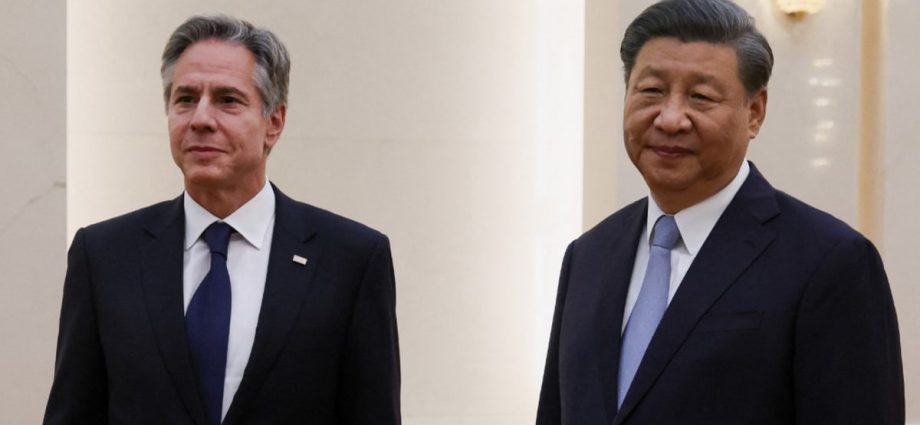
“The two sides have basically agreed to explore the possibility of stabilising the bilateral relationship. There is no certainty they will achieve that goal,” she said.
CAN GAP BE NARROWED?
Glaser noted that while the US speaks of managing the growing rivalry, Xi again spoke of avoiding competition between major powers.
“I think accepting competition is necessary in order to stabilise the relationship. So I see this gap between the two sides that has yet to be narrowed, and I don’t know if it will be,” she said.
Yun Sun, director of the China programme at the Stimson Center, said the US shared blame for the failure to restart dialogue in the military realm, an area where a crisis is most likely to erupt.
The Biden administration – which the rival Republican Party is eager to portray as weak on Beijing – has refused Chinese requests to lift sanctions on its new defence minister, General Li Shangfu, which were imposed under a US law that targets arms purchases from Russia.
The administration says that sanctions should not prevent Li from meeting his counterpart Lloyd Austin.
“The State Department will say there is no legal problem for him to meet Secretary Austin. Sure, there’s no problem for the Americans, but there is for the Chinese,” Yun said.
“It takes two to dance. At least to me, it’s not an unreasonable request,” she said of removing sanctions.
EXPECTATIONS FOR SUMMIT
Shi Yinhong, a professor of international relations at Renmin University of China, said Blinken’s visit was in line with expectations and that the two sides both stressed the positive.
He said the atmosphere appeared on track for Xi to pay a visit to the US in November, when Biden will welcome leaders to San Francisco for the Asia-Pacific Economic Cooperation forum.
The talk of greater communication and narrow cooperation “of course are positive, though difficult to be concretely implemented”, Shi said.
Xi and Biden, who know each other well from their times as vice presidents, met for the first time as leaders in November in Bali, where both sides similarly said they wanted to keep tensions in check.
The Bali good vibes abruptly ended within months when the United States said it detected and later shot down a Chinese spy balloon over US soil, leading Blinken to put off an earlier plan to visit.
Xi in a speech soon afterward took rare direct aim at the US, which he accused of pursuing “containment, encirclement and suppression” of China.
China has been particularly incensed by Biden’s ban on semiconductor exports. Blinken said in Beijing that the United States was not trying to “economically contain” China but rather did not want US technology to go against its own interests.
Yun, the Washington-based analyst, noted that the United States has kept issuing sanctions on Chinese companies and that House Speaker Kevin McCarthy, Pelosi’s Republican successor, has voiced hope of paying his own visit to Taiwan.
“I don’t expect this temporary restarting of engagement to survive that kind of trauma,” she said.
“After Blinken’s visit, the relationship is still extremely vulnerable.”

